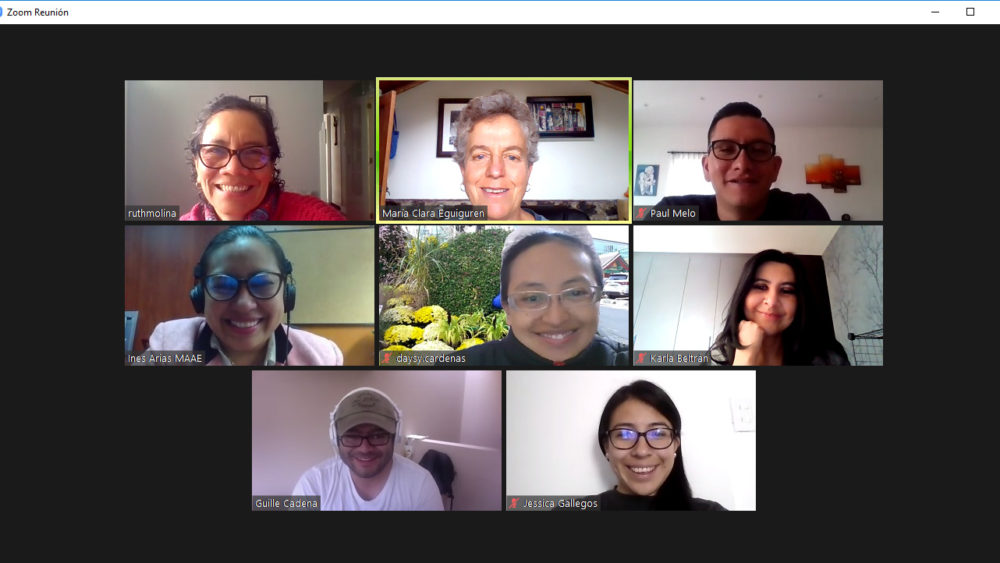The Ministry of Environment and Water (MAAE) has several virtual spaces to collect and disseminate information to guide Ecuador’s environmental policy. Among them are the websites: National Forest Assessment, REDD+, National Forest Monitoring System, and National Greenhouse Gas Inventory System. To update this information, technical field personnel require the use of virtual platforms that allow them to send and receive fundamental information to carry out controls and environmental monitoring activities, especially of forests.
Taking these needs into consideration and within the framework of the FAO-PROAmazonía Project, a training plan was developed for the use of computer platforms and systems for technical personnel responsible for the management and updating of these virtual supports and computer tools, which are developed for use and decision making by the MAAE. The objective is to disseminate and socialize information to the public, as well as to gather important data on the status and conservation of the National Forest Heritage.
Those who are responsible for administering and managing the information on the websites, 76 people from the technical area, participated in these virtual courses. The staff expanded their knowledge in managing the WordPress program. This freely distributed application allows the MAAE to design, create content, post photographs, videos, links to other virtual platforms, as well as consultation documents that will allow the MAAE to socialize with the community the work it does in the territory to conserve the environment and comply with international commitments regarding the annual goals to avoid deforestation and forest degradation. These platforms are in the testing stage; however, once in operation, they will be freely available for consultation by institutions and civil society in general.
The WordPress course was theoretical and practical; at the end of the training the participants built sketches of the main and internal pages of the websites, proposed new structures, with the help of plugins (small complementary programs that expand the functions of the web application), and also learned about the procedure for updating texts, photographs, videos and documents in each of the websites developed, tools that will allow a better interaction of the public with their environmental authority.
On the other hand, the staff of the National Forestry Directorate, in charge of the technical supervision of the National Forest Assessment (NFA), participated from September 8 to 16, 2020 in a theoretical and practical course on the installation, configuration, use and maintenance of the Open Foris Collect tool, which is part of the Open Foris Initiative.
The focus of this course was to improve the skills in the use of the tool, to manage the multiple functionalities of this technological platform and to support the information management processes for the National Forest Assessment.
Among the main topics discussed during this capacity building process, emphasis was placed on: the management of personalized information to process data collected in the field; through the reporting module of the Open Foris Collect tool: SAIKU[1].
In 2021, new workshops and technical and technological training activities will be held in the virtual modality, as well as training in the use of tools, mainly on the new functionalities developed in the reporting and geo-viewer module of the National Forest Monitoring System (NFMS).
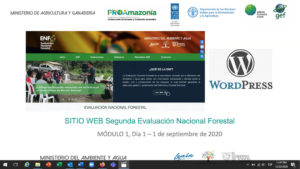
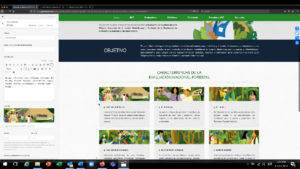
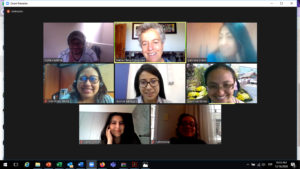
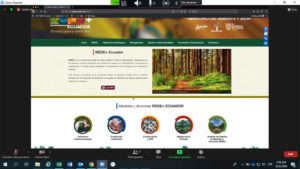
Photographs: María Clara Eguiguren
Description: Images of the virtual workshops delivered
[1] Saiku is a software tool used to perform online analytical processing and is used as Business Intelligence to streamline the querying of large amounts of data. It also allows users to explore complex data sources, using a familiar drag-and-drop interface and easy-to-understand terminology, all within a browser. Select the data you are interested in, look at it from different perspectives, explore the details. Once you have your answer, save your results, share them, export them to Excel or PDF, all directly from the browser.
Authors: FAO-PROAmazonía team (Jorge Armijos, Guillermo Cadena, María Clara Eguiguren and Xavier Salazar)
 Español
Español English
English
